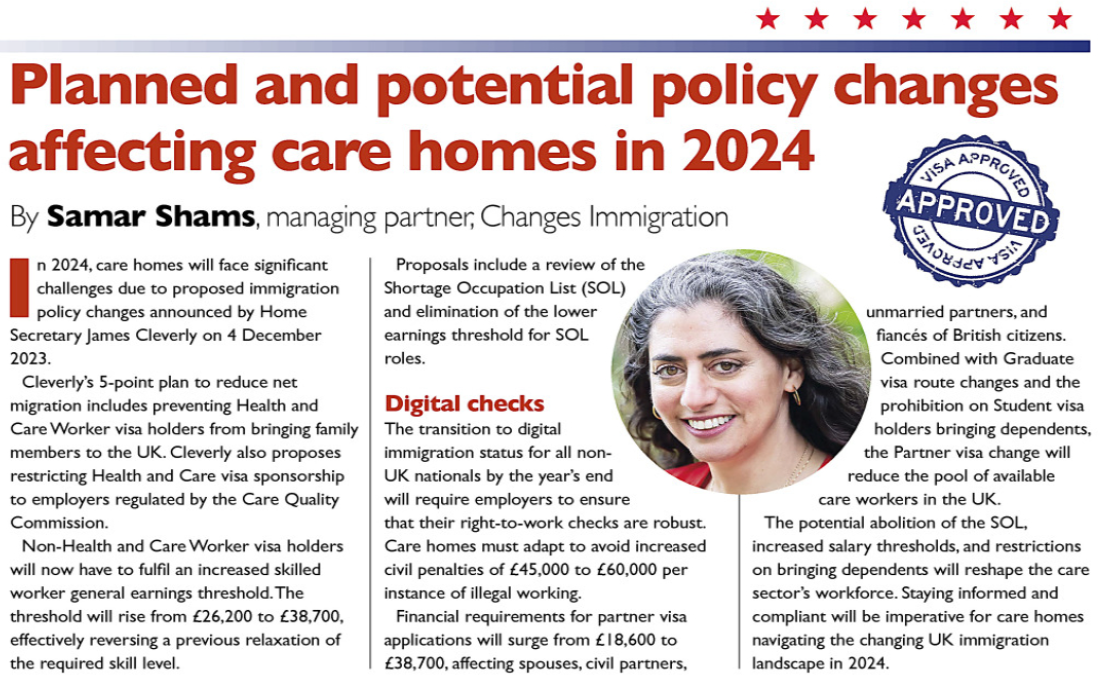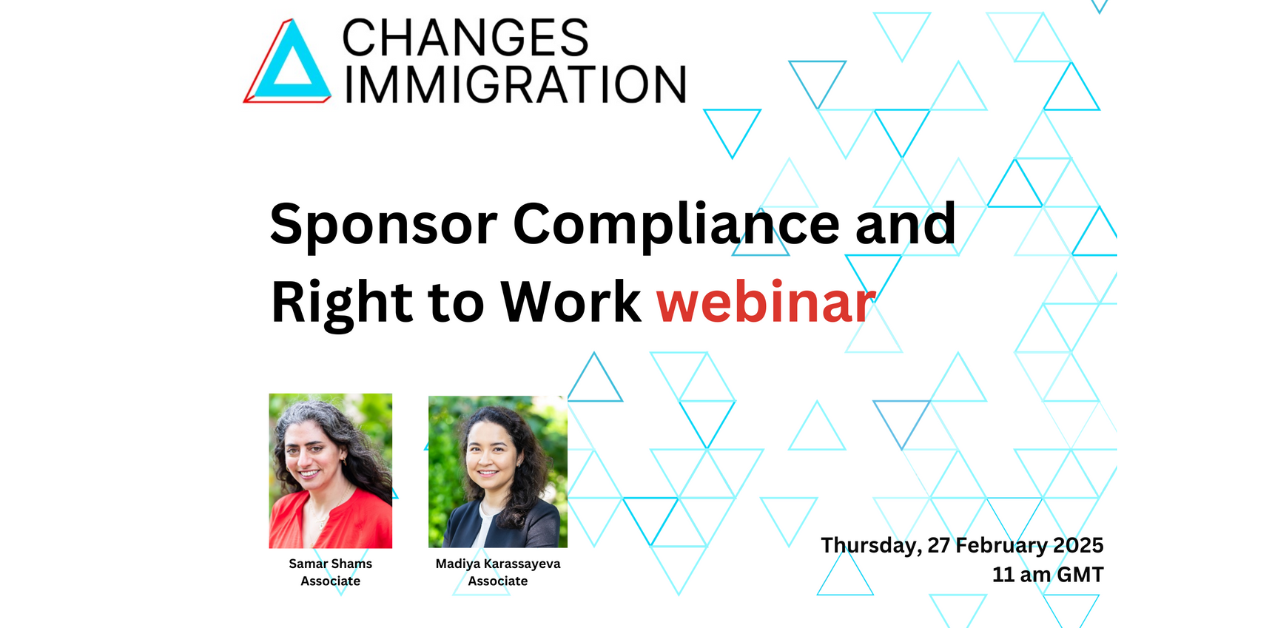There have been changes to the family migration policies, particularly affecting family members of Settled persons, British citizens, Skilled Workers and international students. Here is an overview of the changes and what they mean for families.
Family members of settled people and of British citizens
On 11 April 2024, the Home Office increased the minimum income threshold for new applicants applying as partners of a settled person or British citizen from £18,000 to £29,000. According to the previous UK government, the purpose of this increase was to reduce net migration and curb immigration abuse.
For applicants with children, a fixed minimum income requirement now applies regardless of the number of children in the family. This change became effective on 11 April 2024.
Transitional arrangements are in place for applicants already within the family member visa routes. Applicants who applied before 11 April 2024 will have their applications assessed against the threshold in place before 11 April 2024. Under the transitional arrangements, applicants with permission as Partners before 11 April 2024 will still have to meet additional financial requirements for their children, capped at £29,000.
Upcoming changes to the minimum income requirements?
The current UK government has commissioned the Migration Advisory Committee (MAC) to review the financial requirements for family and Spouse visas including the minimum income requirement and the adequate maintenance requirement.
The MAC’s review will consider the previous government’s proposal to increase the minimum income requirement by early 2025, firstly to £34,500 and subsequently to £38,700.
The MAC will assess whether the current and proposed financial requirements strike the right balance between reducing migration and respecting family life. The current UK government may make further changes to the Spouse visa UK financial requirements depending on the outcome of the MAC’s report.
Family members of Care Workers and Senior Care Worker
Applicants are no longer allowed to apply as the dependent partner or child of a Skilled Worker who is sponsored for a job in the occupation code ‘6135 Care workers and home carers’ or ‘6136 Senior care workers’ under the SOC 2020 classification. This change came into effect on 11 March 2024. There is, however, an exception to this new rule. A dependant may apply if the lead applicant has had permission as a Skilled Worker continuously before 11 March 2024 and is sponsored under either the occupation code ‘6145 Care workers and home carers’ or ‘6146 Senior workers’ under the SOC 2010 classification.
Family members of applicants on the Student route
Most international students who commenced their studies on or after 1 January 2024 are no longer permitted to bring their dependants to the UK. Only the following types of students are currently permitted to sponsor their dependants on the Student Visa route:
- A full-time student on a postgraduate level course (RQF level 7 or above) that lasts 9 months or longer. The postgraduate level course must be either a PhD or doctorate degree (RFQ Level 8) or a research-based higher degree.
- A government-sponsored student studying a course that lasts more than 6 months.
Applicants should note that if they commenced their course before January 2024, and their dependants were initially granted permission as Student dependants, their dependants will be able to apply for an extension to their visa.
Work and Student visa Partners – Documentation required to evidence the relationship
Where a couple is not married or in a civil partnership, different types of evidence can establish co-habitation or shared financial responsibilities, or that the couple remained in a genuine subsisting relationship during periods when they were apart, e.g. for work reasons.
Since July 2023, partners of Student and work visa holders must meet the requirements of Appendix Relationship with Partner. When assessing applications under Appendix Relationship with Partner, UK Visas and Immigration caseworkers are instructed to assign different weights to documents when verifying whether, on the balance of probabilities, the relationship is ‘genuine and subsisting’ as required.
Evidence given the most weight is evidence that is issued by an organisation that carries out checks on the person involved, for example their identity, address, immigration status. This evidence is official and verified by the issuing organisation. This type of documentation might be sufficient, on its own, to evidence the relationship. A marriage certificate, utility bills, and bank statements are examples of strong evidence.
Acceptable evidence includes documents issued by an organisation that might not have conducted checks on the person. The documents might not have been verified as correct by the organisation or might be outdated. UK Visas and Immigration caseworkers are instructed to allocate ‘reasonable weight’ to this type of evidence. The Home Office is likely to require more than one piece of this type of evidence and scrutinise the applicant’s wider circumstances to consider why they have not provided stronger evidence. Examples include electoral register confirmation and invoices for home repairs.
Weak evidence includes evidence from individuals with no official capacity or that has not been verified by the provider of the document. UK Visas and Immigration caseworkers will afford this evidence some weight, but it is unlikely to be accepted as sufficient evidence of a relationship on its own. They may request further information or documentation or contact an applicant who has only provided weak evidence to seek more information on their circumstances. Examples of weak evidence include letters of support and photographs of the couple together.
Family members of EU Settlement Scheme status holders
EU Settlement Scheme (EUSS) rules are complex. Changes discussed above apply to some family members of EUSS status holders and not others, depending on a number of factors including when the relationship started and the nature of the family relationship.
Relationship with a Partner requirement
An applicant must be married, in a civil partnership or in a relationship similar to a marriage that has existed for at least 2 years before the date of application.
Unmarried partners are no longer required to have lived together for at least two years.
Please note that the information presented here should not be relied upon as legal advice. If you would like to instruct us to provide legal advice, please contact Changes Immigration.
Original publication title and date: ‘What is love: Work visa dependants to be assessed under different criteria’, 21 July 2023
Last updated: 11 September 2024








